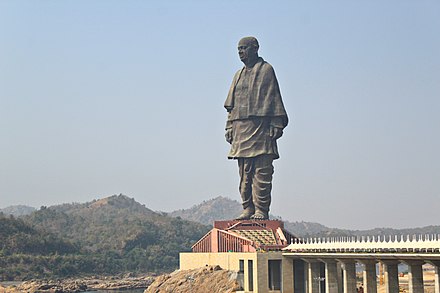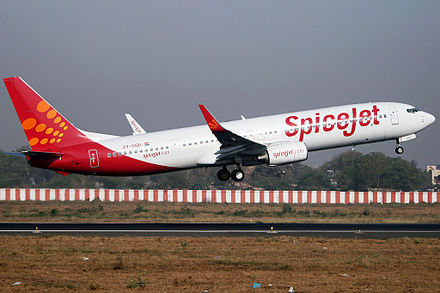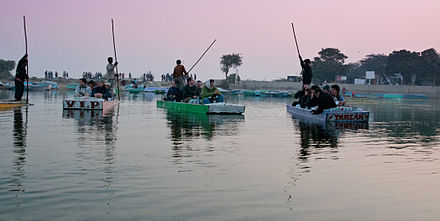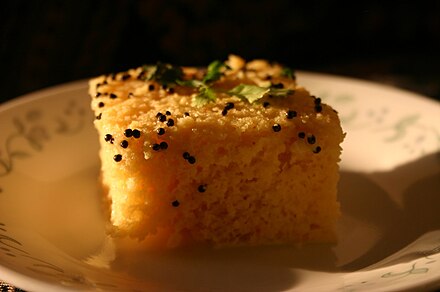Gujarat - state of India
Gujarat (Gujarati: ગુજરાત, Hindi: गुजरात) is a state in the western region of India. Lothal, near to Ahmedabad and Dholavira, near to Kutch are sites of a Harappan (Indus) civilisation, which existed more than 4,000 years ago. Gujarat is known for the Stepped Wells, Jain Temples, Asiatic Lion and business-oriented people.
Regions
It was never incorporated into British India. Instead it survived as more than 200 princely states under British suzeranity till independence.
The largest district in the state and the country, famous for the Rann of Kutch.
Cities
Below is a selection of nine of Gujarat's most populated cities. Other cities can be found under their specific regions.
-
Gandhinagar 📍 — administrative capital of Gujarat, city of Akshardham Temple and the second planned Green City.
-
Ahmedabad 📍 — Manchester of the East, commercial capital of Gujarat, home of Mahatma Gandhi’s Ashram.
-
Bhavnagar 📍 — busy industrial centre, base for journeys to nearby sites.
-
Bhuj 📍 — a historical city and has a long history of kings and empires.
-
Jamnagar 📍 — home to the world’s largest Grass-Root Refinery complex.
-
Surat 📍 — Diamond City, famous for mouth watering Surati food.
Other destinations

-
Blackbuck National Park 📍 — open grassland that is home to blackbuck and nilgais (Blue bison)
-
Champaner-Pavagadh Archaeological Park 📍 — a UNESCO World Heritage Sites. Old Islamic cities with fortress and Jain temples
-
Dwarka — believed to have been built by Lord Krishna. The temple must have been erected during the period of Mughal Emperor, Akbar. Dwarka is the westernmost of the Hindu holy cities.
-
Gir Forest National Park 📍 — a very important and supported habitat for the last remaining population of wild Asiatic lions
-
Kevadia — a small town best known for the Statue of Unity, the tallest statue in the world.
-
Pirotan Island 📍 — a Marine National Park, Gulf of Kutch
Understand
Gujarat is a dazzlingly diverse state that shakes up the know-it-all Indophile, and reveals treasures hidden from the tourist hordes. Gujaratis are famous for their thrift and entrepreneurship. Encounter an India anywhere, from Wall Street to Wellington, and there’s a good chance they hail from this wealthy, resourceful state. There are many significant sites of the God Krishna’s life along the coast of Saurashtra. With 20% of the country's total industrial output, Gujarat is also the most industrialised state in India.
People
About 89% of the population of Gujarat are Hindus. Muslims account for 9% and Jains 1% of the population. Most of the Gujarati people are strict vegetarians. Amongst Hindus the deity of Krishna is famously worshipped in his form of Shrinathji throughout Gujarat. Since Gujarat is a heavily industrialised state, there are many factory jobs that have attracted migrants from other parts of India.
Another notable community in Gujarat is the Siddi community, who are comprised of people of African descent who have lived in India for many generations. Despite now speaking Gujarati as their first language, many African customs continue to be preserved in the community.
Weather
The winters are mild, pleasant and dry, with average daytime temperatures around 24 °C (80 °F) and nights around 10 °C (51 °F) with 100 % sunny days and clear nights.
The summers are extremely hot and dry with day temperatures around 46 °C (115 °F) and at night no lower than 34 °C (90 °F) with sunshine.
At the time just before the Monsoon, the temperatures are similar to summer but with high humidity which makes the air feel hotter. Relief comes when the monsoon season starts around mid June. The day temperatures are lower to around 38 °C (100 °F) but humidity is very high and nights are around 27 °C (80 °F).
Winter (October to January) is best time to travel in Gujarat.
Talk
See also: Gujarati phrasebook
The official languages of the state is Gujarati. According to a census from 2011, 86% of the population have it as their first language.
Hindi is widely understood and used in everyday business. For many Gujaratis, it is a second (sometimes a third) language. If you don't know any Gujarati, don't despair; you can get around easily using only Hindi. Speakers of Urdu should have no problems getting around since Hindi and Urdu are mutually intelligible.
English is taught in schools and is understood in major cities. Gujaratis are often lampooned by people in other parts of India for their English language skills — for example, they normally pronounce "snake" as "snack", and they normally pronounce "push" as "puss". The Gujaratis themselves even admit that the clichés about their English language skills are true. The two main reasons behind this: A poorly structured educational system and poor access to English-language education.
Get in
By plane

- Sardar Vallabhbhai Patel International Airport (SVPIA) (IATA: AMD) airport is in the North Zone of Ahmedabad. Ahmedabad is the only international airport in Gujarat with regular flights to and from London, New York, Chicago, Singapore, Muscat, Kuwait, Doha (Qatar), Sharjah and Dubai. Domestic flights connect to Mumbai (Bombay), Delhi, Chennai, Hyderabad, Bhopal, Indore and Kolkata (Calcutta).
- Vadodara Airport is a major airport in Gujarat with daily flights to Delhi and Mumbai; and hopping flights to Bangalore (Bengaluru), Hyderabad, and Kolkata.

- Surat Airport (IATA: STV) is a domestic airport in the Magdalla area of Surat. Air India has daily flights to and from Delhi. SpiceJet operates daily from Surat to Mumbai and Delhi.
Flights into smaller airports of Bhavnagar, Bhuj, Diu, Jamnagar, Porbandar, Keshod, Surat and Rajkot connect through Mumbai.
Domestic airlines include Air Deccan, IndiGo and Air India.
By car
- From Delhi, Agra and other places in the Plains: Take the National Highway 48 (NH 48).
- From Mumbai, Jaipur, Jodhpur and other places in Western India: Take the National Highway 48 (NH 48).
- From Nagpur and other places in Vidarbha: Take the National Highway 53 (NH 53).
- From Indore, Bhopal and other places in Central India: Take the National Highway 47 (NH 47).
Gujarat has 1,572 km of National Highway Network.
By train
India has very big rail network. Indian Railways has a 5,890 km rail network in Gujarat.
- There are trains from and to Mumbai (500 km) and New Delhi (1000 km) and other big cities of India several times a day going to the main cities of North-Centre-South Gujarat, including Ahmedabad, Vadodara and Surat.
- Cities of Saurashtra and Kutch, including Bhavnagar, Bhuj, Jamnagar, Junagadh, Surendranagar, Porbandar, Kandla and Rajkot, are connected via Mumbai.
Get around
By road
Most people in Gujarat travel by government buses like GSRTC, private buses or by taxi. These are excellent modes of transport as the roads are among the best in India. Check at your hotel if you want a travel agent for private buses.
By train
Ahmedabad, Vadodara, Surat, Rajkot, Bhavnagar, Bhuj, Jamnagar, Junagadh, Surendranagar, Porbandar and Kandla are big stations in the Indian Railways Network.
See
Museum

- The Calico Museum of Textiles, Sarabhai Foundation, Opp. Underbridge, Shahibag, Ahmedabad, +91 79 22865995, info@calicomuseum.com. Th-Tu 10:30 to 12:30 and 14:30 to 17:00 (no entry after 11:00 in morning). Entry restricted to 30 visitors – 15 visitors on the basis of first-come-first-served and 15 by group booking. Free
- Lalbhai Dalpatbhai Indology Museum, R Gujrat University, Navrangpura, Ahmedabad. Tu-Su 10:30 to 17:30, closed on public holidays. The museum covers a wide variety of topics from Buddhism, Jainism and its darshans, grammar, tantra and poetics to Vedas, agama to the different branches of India philosophy. It is learnt that this museum has the largest collection of Jain scripts which come around 75, 000 manuscripts with 500 illustrated versions and 45,000 printed books. Free
- Sabarmati Ashram (Mahatma Gandhi Ashram), Ashram Road, Ahmedabad, 23.06°, 72.580833°, +91 79 27557277, admin@gandhiashramsabarmati.org. Daily 08:00 to 19:00 including Sundays and holidays. Free
Fairs & festivals
- Government Sponsored and organised
- The International Kite Festival. The three-four days International Kite Festival is held every year during the second/third weekend of January at Ahmedabad during Uttarayan festival (14-January). Visitors come from around India for the celebration and international visitors have come from many countries.
.
- The Modhera Dance Festival, 23.583806°, 72.132685°. The three-day Modhera Dance Festival is held every year during the third weekend of January after the conclusion of Uttarayan festival. The dance festival is frequently visited by art and dance connoisseurs from around the world. Classical and folk dancers and musicians from different states of the India exhibit their talent and flair while culture enthusiasts become part of the festival to witness this splendid event.
- The Rann Utsav (desert festival). The three-day Rann Utsav is held every year during the Full moon night in the month of December at Bhuj and goes around the district with a grand finale. The festival is visited and enjoyed by more than 8000 tourists from all over the world to celebrate the mystical magic of Kutch and its diversity.
- The International Kite Festival. The three-four days International Kite Festival is held every year during the second/third weekend of January at Ahmedabad during Uttarayan festival (14-January). Visitors come from around India for the celebration and international visitors have come from many countries.
- Traditional Festival
- Bhadra Purnima-Bhadra Purnima is one of the biggest festivals of Gujarat, popularly known as the Ambaji Bhadra Purnima. This is because the festival is celebrated at Ambaji, a village which derives its name from the shrine that is here. The village is situated at the foothills of Mount Aravalli.
- Dangs Darbar-Dangs Darbar is an annual festival celebrated in the Dangs district, in the Saputara Hills of India. The district is inhabited by the tribal people, who have lived in the region's woods and highlands since times memorial. This makes Dangs Darbar, essentially a tribal festival of Gujarat.
- Kutch Mahotsav-Kutch Mahotsav serves as the guided tour of the Kutch region of Gujarat. It is organized by the Tourism Corporation of Gujarat and lasts for six day. This tour takes you around the venerated places in Kutch.
- Modhera Dance Festival-Modhera dance festival is one of the major festivals organised in the state of Gujarat. It is primarily a dance festival and showcases the various traditional dance forms of the region.
- Rath Yatra-Rath Yatra is a huge festival celebrated in Gujarat. Rath means chariot and Yatra means journey. As the name suggests, during the festival, huge wooden floats are prepared and the idols of Lord Krishna, Lord Balarama and Goddess Subhadra are placed in them.
- The Uttarayan- The one-day Uttarayan is held every year on 14 January across Gujarat. The aerodynamic skill, devotion and ingenuity that goes into the kite making and flying is almost a religion in itself, honed to the level of an art form, though it looks deceptively simple.
Itineraries
- Buddhist Route (4 Day / 3 Night)- Start from Bhavnagar – Day one - Buddhist Caves at Talaja - Night (Junagadh) – Day two - Ashoka Rock Edicts, Buddhist Caves at Junagadh and Upperkot Fort – Night (Bhuj) - Day three - Buddhist caves in Siyot village via Lakhpat - Night (Bhuj)- Day Four - Shopping at Ahmedabad and/or Exit for Rajasthan or Delhi or Mumbai.
- International Tourist Route (4 Day / 3 Night)- Start from Ahmedabad- Day one – Mahatma Gandhi Ashram - Calico Museum of Textiles – Night (Ahmedabad or Utelia Palace Hotel or Velavadar National Park guest house) – Day Two - Velavadar National Park - Palitana – Night (Bhavnagar or Diu) – Day Three - Relax on beaches and resorts of Diu or The Somnath temple – Junagadh –Night (Junagadh or Rajkot or Rann Riders Resort) – Day Four - Rann Riders Resort or Shopping or Exit for Rajasthan or Delhi or Mumbai.
Do
- Travel by Royal Orient Train The Royal Orient train is one of the world's most exotic trains. It is an experience that takes you back to the times of Rajas and Maharajas. You get to explore two of the most fascinating and culturally rich states of India, Gujarat and Rajasthan. The train travel 7 days through Delhi - Chittaurgarh - Udaipur - Junagarh - Dilwara - Palitana - Ahmedabad - Jaipur and back to Delhi
- Travel by man driven Boat in Nal Sarovar (lake) Bird Sanctuary spread over 120 km² to see over 250 species of migrated birds from Siberia and Europe. Best time to visit Nal Sarovar is Between November and February. In April Birds start to leave the lake.

- Safari in Blackbuck National Park to see group of jumping Black Bucks from every parts of the park. There is no wild animal in park, it is also fun to trail or Camping in park.
- Hiking on the Shatrunjaya hill and biking on Hastagiri to see devotion of Jain. There are in total 863 marble temples (largest cluster of temples in India) on Shatrunjaya hill
- Safari in Gir Forest National Park to see Remaining Asiatic Lions in the world.
Buy
There are Gujarati Handicraft Development Corporation showrooms selling Gujarati and Kutchhy handicrafts in Ahmedabad, Vadodara, Bhavnagar, Rajkot, and Surat.
Eat
 Gujarat is heaven for vegetarians. Approximately 80% of Gujaratis eat vegetarian foods only. Hundreds of varieties of lacto-vegetarian foods are offered across Gujarat. Rotli (chapati/puri), shaak (subzi/vegetables/curries), mithai (sweets), rice and dal are parts of a Gujarati Thali in restaurants. Finding non-vegetarian restaurants in Gujarat can be difficult. Chicken and mutton are the most common kinds of meat, but only occasionally eaten.
Gujarat is heaven for vegetarians. Approximately 80% of Gujaratis eat vegetarian foods only. Hundreds of varieties of lacto-vegetarian foods are offered across Gujarat. Rotli (chapati/puri), shaak (subzi/vegetables/curries), mithai (sweets), rice and dal are parts of a Gujarati Thali in restaurants. Finding non-vegetarian restaurants in Gujarat can be difficult. Chicken and mutton are the most common kinds of meat, but only occasionally eaten.
Drink
On paper, Gujarat is one of the few states in India that curtails the sale and distribution of alcoholic beverages, but many people violate this law and it is quite common for people to smuggle and illegally distribute alcohol.
To purchase alcohol, you must apply for a permit. You may do so online or at the place where you stay. You may only buy and drink alcoholic beverages at licensed locations. If you don't have a permit, you will not be allowed to drink.
Stay safe
Gujarat is a relatively safe state compared to the rest of India. It has a low crime-rate compared to the Plains, although pickpockets are not uncommon. For emergencies, you can dial 100 for police assistance.
Being drunk in public is not permitted and it is highly frowned upon by the locals. Despite grumblings from lawyers that the penalties are severe, anyone caught being drunk in public for the first time will be sentenced to six months' imprisonment, a fine of Rs. 1000, or both. A second offence will result in two years' imprisonment, a fine of Rs. 2000, or both.